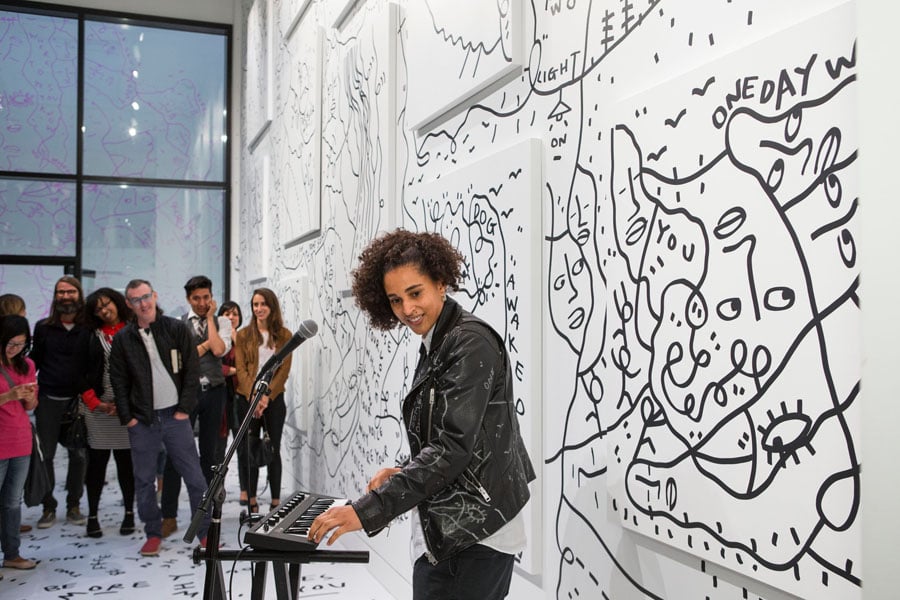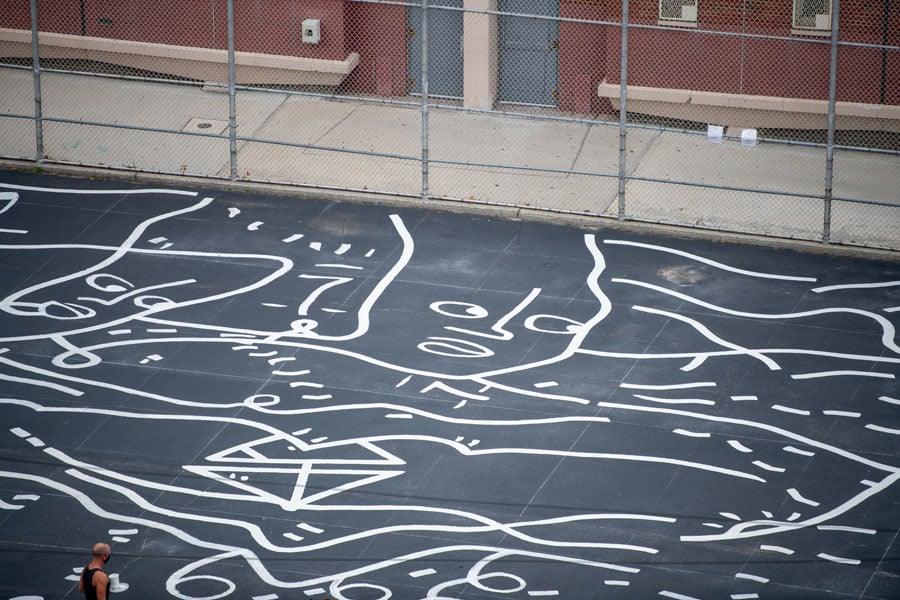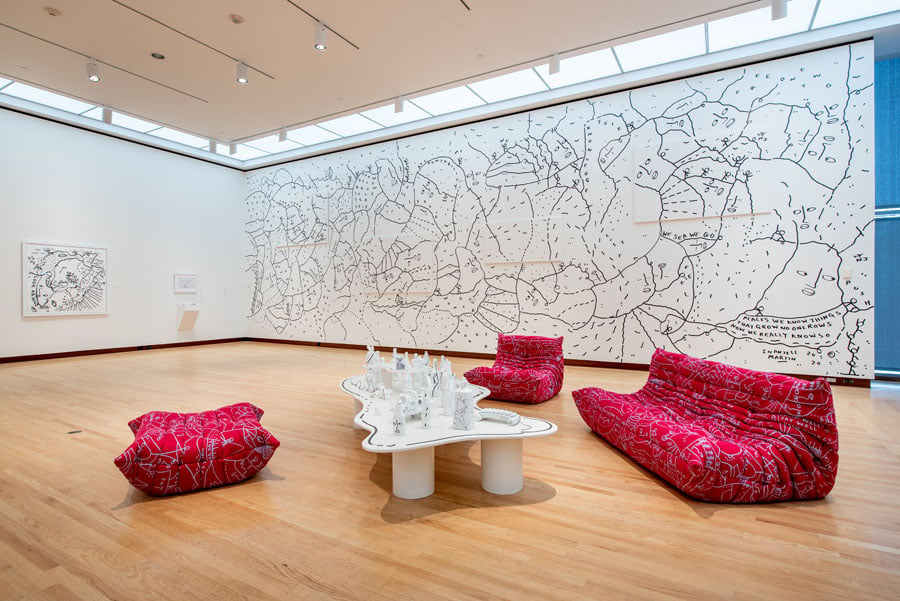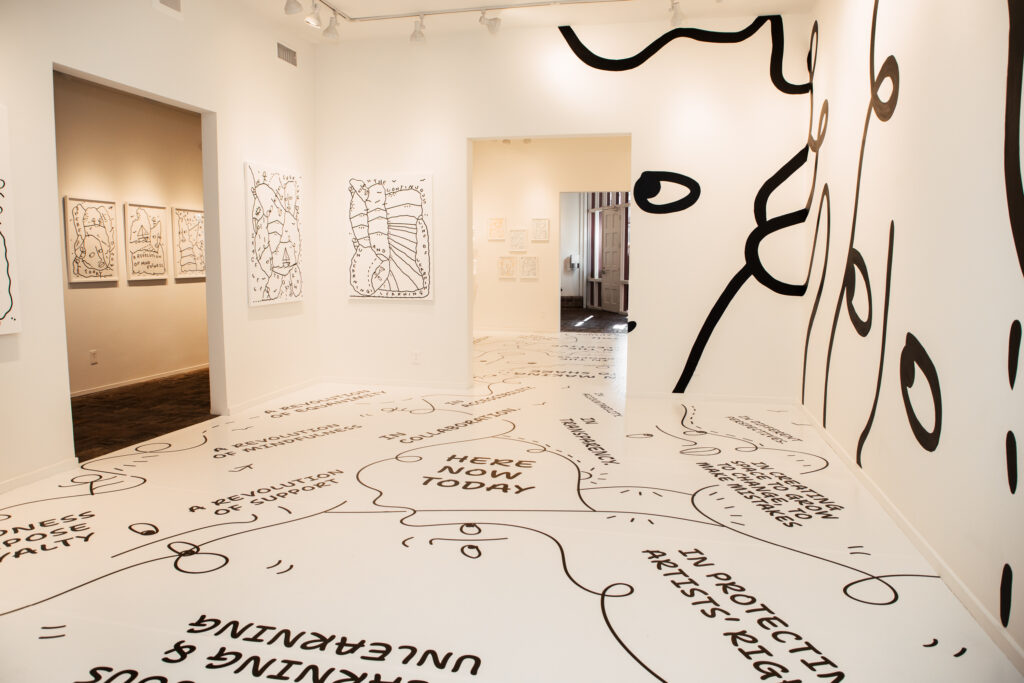However there’s extra left to study Martin, like her music and the truth that she has taught the advanced course of behind her easy line artwork at New York College. She elaborated on these and different aspects of her apply throughout a latest telephone name with Metropolis editor Kelly Beamon. What follows is the primary of that two-part interview.
KB: In addition to your spatial work, you’ve executed product collaborations with B&B Italia, Kelly Wearstler, Tiffany and Firm. I’m in all probability going to overlook some stuff. Nike, Adidas, Puma, and textiles. Is that proper?
SM: Momentum Textiles.

KB: Sure! And now you’re launching a line of snap-together tables with furnishings firm Hoek.
SM: Yeah, now Hoek. I’ve additionally labored with a few different furnishings firms Vitra, Artech. A little bit bit with Ligne Roset.
KB: Oh, what did you do with Ligne Roset?
SM: We took my textiles for Momentum, upholstered [Michel Ducaroy’s] Togo seating and displayed that in my present on the New Britain Museum of American Artwork.
KB: These business tasks barely scratch the floor of your whole tasks, which is so expansive. Would you’re taking our viewers on a deeper dive into your apply? Such as you’re class at NYU within the Tisch Interactive Telecommunications Program (ITP). That’s one thing I didn’t count on.
SM: I’ve had this type of aspect path in academia that I’m unsure lots of people learn about. However, fairly early after I moved to New York from Tokyo, I began to talk at a few of these movement graphic conferences or these form of extra nerdy forms of conferences. And thru that I acquired invited to show at ITP.
I ended up being an adjunct professor there for in all probability seven plus years. My class was known as “Drawing on All the things.”

KB: What an important title.
SM: It was about drawing metaphorically and bodily: Drawing from your individual talents, drawing from your individual identification, drawing from your individual signature, your inside core. And the ultimate aim of this 12-week semester was that we’d do a efficiency piece hosted by the Museum of Shifting Picture.
KB: Forgive the pun, however how did that draw in your technique of ‘performing’ your drawings in entrance of individuals in real-time?
SM: I got here [to New York] from Japan [where I was] performing and doing issues dwell, so I do know the advantages of doing one thing in public and [letting] one thing dwell creatively. . . . This [final performance] meant we had a aim and a vacation spot and one thing that the scholars might construct in direction of.
However throughout the course of the category, we had been taking a look at a variety of totally different workout routines that had been time-based.

KB: What had been these like?
SM: Virtually like a boot camp or a sequence of those workout routines—individually, teams, pairs, smaller teams. My stipulation for the efficiency piece is that it has to have a basis in drawing, however that drawing can take many alternative ideas. It may very well be code, it may very well be puppetry, it may very well be dance, it may very well be precise drawing, it may very well be one thing else in between all of these.
We’d do all these kinds of drawing and transferring and creativity workout routines, in order that I might get them in a spot the place they’re simply making, simply writing, simply drawing, simply transferring. And what occurs is, over time whenever you create all these workout routines and save the outcomes, you get to look again and say, ‘Hey, there’s some recurring themes right here.’
And people themes may take the type of the forms of density {that a} scholar’s utilizing. Perhaps there’s phrases that seem, possibly there’s no phrases, however possibly there’s a coloration, possibly there’s thickness of the kind of instruments that they’re utilizing.
KB: Hmm. It feels like a solution to obtain extra genuine work.
SM: There’s this energy of reflection and looking out again at work you’ve made consecutively over an extended time period, after which extracting the frequent threads all through that work. After which I might be like, “Properly, that is your fashion. That is your identification.”
KB: That doesn’t look like one thing you’d count on to study in a category that’s a part of “interactive telecommunications” research.
SM: After all, this system may be very tech pushed. [Students] are studying how you can code and all this actually enjoyable tech-y stuff. However then they get spat out on the finish of that course, not likely pulling any of them themselves or their identification into the work. How do you stand out, if you end up one in every of very many individuals graduating from a course like ITP at totally different colleges? They’re all attempting to use for [jobs] at these startups or totally different firms. What makes you uniquely you, and means that you can stand out a little bit bit? It’s essential to infuse that into the opposite applied sciences that you simply’re studying.


